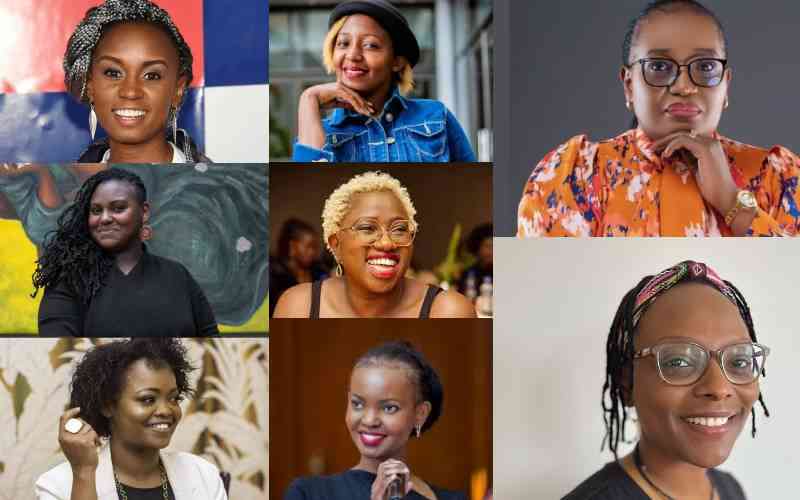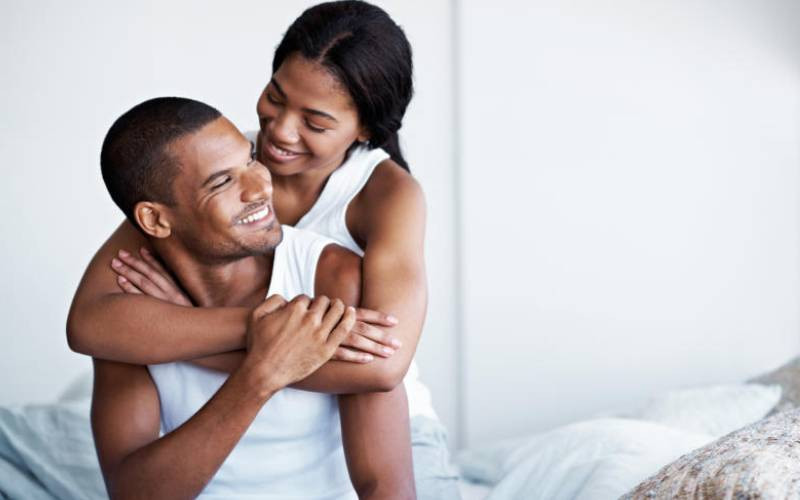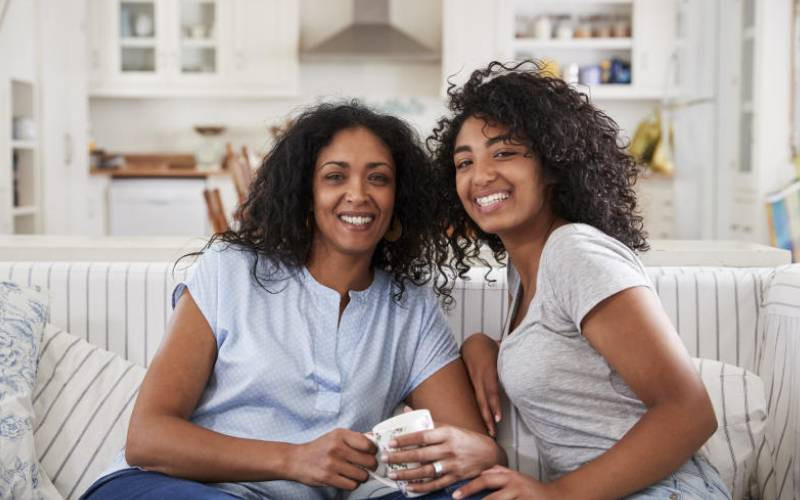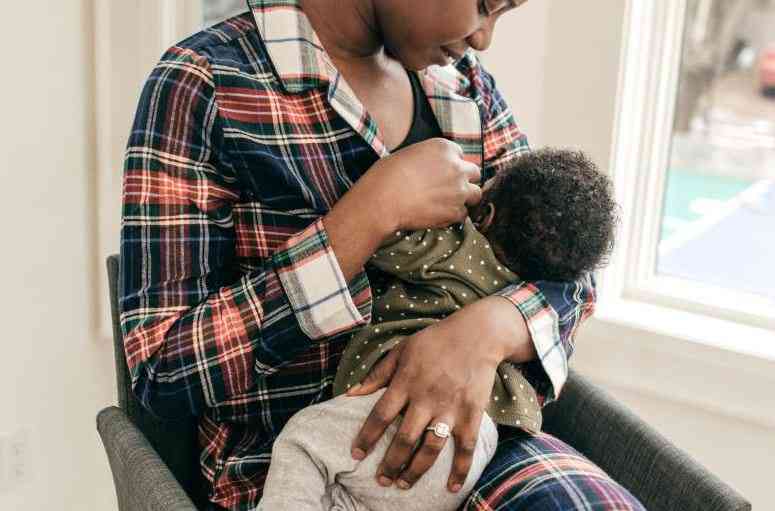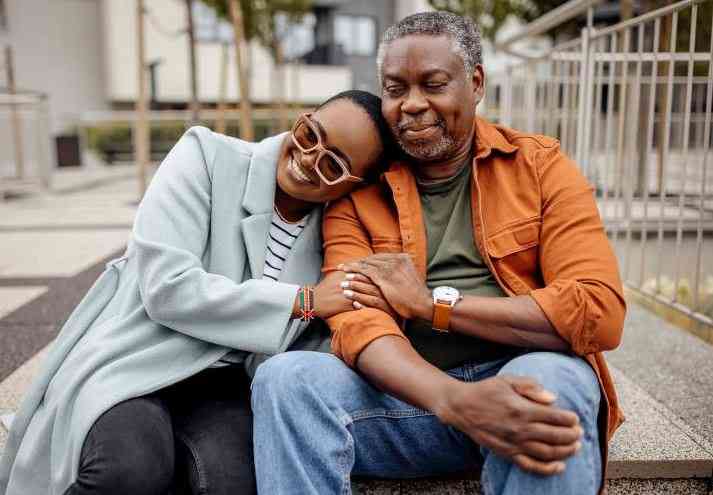
"I'm dressing for the female gaze" is a phrase that is becoming popular.
It is meant to imply that a woman's choice of style, from her make-up to her outfit to the way she carries herself, is all about her and not about the need to attract a man.
Such statements are perhaps a sign that we as a society have moved on from the days when all women did was find a good man and marry well.
In 1975, film critic Laura Mulvey coined the term 'the male gaze' to describe the representation of women in the visual arts and literature from a male, heterosexual perspective, as personal stylist Jessica Zanotti writes on Medium.
“In this perspective, women are objectified for their physical appearance, for the pleasure of the male viewer.”
She adds: “Dressing to please the male gaze implies a subconscious desire to be the object of male attention. Women have been conditioned by the media since childhood to dress in a way that will please men, with their expectations of what a woman’s body should look like, often sacrificing their style and taste. This desire for male visual approval can limit individuality, self-expression and self-acceptance.”
But today, with the rise of the women's movement and the growth of a more outspoken, empowered generation of women, the ladies are saying "it's all about us now".
Silvia, a retail sales associate in her early 20s, tells Eve that women are prioritising self-care and self-love over being aesthetically pleasing to men.
- Returning to work after maternity leave
- Teach your children good values at an early age
- Keeping your children busy over the holidays
- Safely include your children in the kitchen with these tips
Keep Reading
“We are self-romanticizing our lives. It’s about how you take care of yourself. Look good, feel good, plus being a girlie girl is fun. I feel that what we aspire to shifted to the female gaze. So many women inspire me with how they take care of their bodies,” she says, adding, “The likes of Miss Atieno and Carrie Wahu on Instagram with their fitness journeys and all the girls that are into fashion too.”
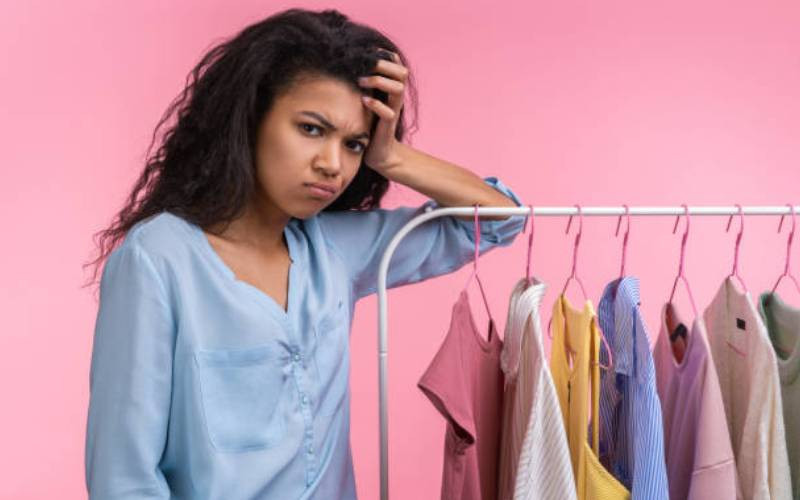
A scroll through TikTok and other popular social apps using the search term "female gaze vs male gaze" suggests that if women were dressing to attract men, they would need to be more revealing, and if they were doing it for the women, they would reflect high fashion rather than sex appeal.
One Coco Chinelo, a YouTuber, conducted a social experiment where she did both on separate occasions.
What she describes as her "female-gazy outfit" consisted of a baseball cap, an oversized t-shirt, baggy jeans and a layered leather jacket.
On the other hand, her "male gazy outfit" consisted of a tight catsuit that showed off her curves.
“This is the outfit that speaks more of my personal style. I love wearing baggy silhouettes as it makes me feel more comfortable, and also because I physically take up more space and that allows me to feel assertive and more confident,” she says of the outfit she selected for the female gaze.
And on the opposite, she says: “It was hard to style this one for the male gaze, but I wanted to wear this body-hugging bodysuit to kind of emphasize my figure.”
Coco then took to the streets to test out both outfits, and the results were worlds apart.
“I could feel the stares on me,” she says of the body-hugging outfit that got all the men’s attention.
“It was an uncomfortable feeling. The stares were prolonged, and I could tell it was about the outfit because people were looking me up and down.”
The content creator adds that coupled men also stared at her, despite being with their partners at the time. She was also approached by one, as the outfit drew men like a magnet to metal.
At some point, they began to holler and cat-call at her relentlessly, no matter what street she was walking on.
When Coco switched to her "female gaze" outfit, things seemed to simmer down.
“ I literally got no male attention, and they barely even glanced in my direction.”
The video which was uploaded in December last year has accumulated over 2.7 million views.
Lunah, a Public Relations executive, notes that the idea that one style of dressing is either meant for male or female attention is confusing and conflicting.
“The male gaze outfits are miniskirts, etc but what if I want to dress like that for me? And I am comfortable in that?”
Ndanu*, 34, a banker, says that women don’t really sit around anymore trying to figure out what will make men happy visually.
“Things have changed, and more women are having a feminist point of view. Women like Lori Harvey who consider themselves the prize when it comes to dating focus on their happiness,” she says, adding, “Those still seeking the male gaze might be coming from a scarcity mindset. Men used to be sought after as providers because of a lack of economic resources for the ladies, but today, women are flipping the script.”
She adds: “When a woman compliments me or tells me that I look good or that I inspire her, that’s when I’m truly happy. It’s not objectifying, it has no ulterior motive, and it boosts my confidence.”
Further on Lunah’s point that both concepts of the male or female gaze are contentious and confusing, it’s important to note that there is nothing wrong with either.
“[Let’s] acknowledge dressing for the male gaze as a valid personal choice. After all, what if we want to be noticed and admired? Is dressing to please others inherently wrong?” Zannoti notes on Medium.
She adds: “Many of us yearn to feel desired, and dressing up to look desirable isn’t anti-feminist or thinking poorly of ourselves. It’s normal behaviour in the mating process and society in general. There is nothing wrong with desiring attention, wanting to be noticed and admired or conforming to a societally acceptable way of dressing, especially if it truly empowers the individual.”
Understandably, with the genders at war, every move the other makes can be weaponised, and it's hard for either party to know how best to behave.
A man is attracted to physical beauty, but if he stares too long, he's being inappropriate. A woman loves to feel beautiful and confident, but if she looks a little too sexy, she's in danger of being objectified.
While exploring why many women have chosen to take up a female gaze style, Vogue Magazine Australia notes that it is about the woman “dressing however she wants to, with absolutely no regard for how she is perceived by men on a scale of conventional attractiveness.”
The magazine uses Julia Fox (popularly known as Ye’s ex-girlfriend), and her eccentric style as the prime example in the November 2023 piece.
The report notes: “The more serious undertones of purposefully not dressing for the male gaze are complex and multifaceted. It has less to do with the individual male opinion and more to do with a macro-level cultural rejection of female objectification; a celebration of female agency void of gendered interference, and a plight in finding confidence and contentment in not being found stereotypically attractive.”
“In short, we no longer have to run checks past male standards for validation of our looks, via our clothing.”
 The Standard Group Plc is a multi-media organization with investments in media platforms spanning newspaper print
operations, television, radio broadcasting, digital and online services. The Standard Group is recognized as a
leading multi-media house in Kenya with a key influence in matters of national and international interest.
The Standard Group Plc is a multi-media organization with investments in media platforms spanning newspaper print
operations, television, radio broadcasting, digital and online services. The Standard Group is recognized as a
leading multi-media house in Kenya with a key influence in matters of national and international interest.


